Speakers
Dr. P.K. Mishra
Principal Secretary to Prime Minister of India
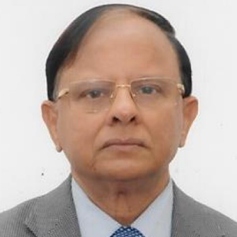
Dr. P.K. Mishra
Principal Secretary to Prime Minister of India
Dr. P.K. Mishra has a career profile comprising research, publications, policy formulation and programme / project management. He has varied work experience in management of programmes relating to agriculture, disaster management, power sector, infrastructure financing, and regulatory issues.
As Additional Principal Secretary to the Prime Minister during 2014-2019 Dr. Mishra is credited with introducing innovation and transformative changes in human resource management, particularly appointments to senior positions. When the National Disaster Management Authority (NDMA) was set up towards the end of 2005, Dr. Mishra played a crucial role in operationalizing its structure, functions and perspectives. He published a book entitled The Kutch Earthquake 2001: Recollections, Lessons and Insights in 2005.
He has a Ph.D in Economics/Development Studies from the University of Sussex, UK. He completed M.A. degree in Development Economics at the University of Sussex in 1990, when his academic performance was rated outstanding by the university. He did his M.A. in Economics with a first class at the Delhi School of Economics. In 2019, he was conferred with the United Nations SASAKAWA Award, the most prestigious international award in disaster management.
H.E. Taranjit Singh Sandhu
Ambassador of India to the United States
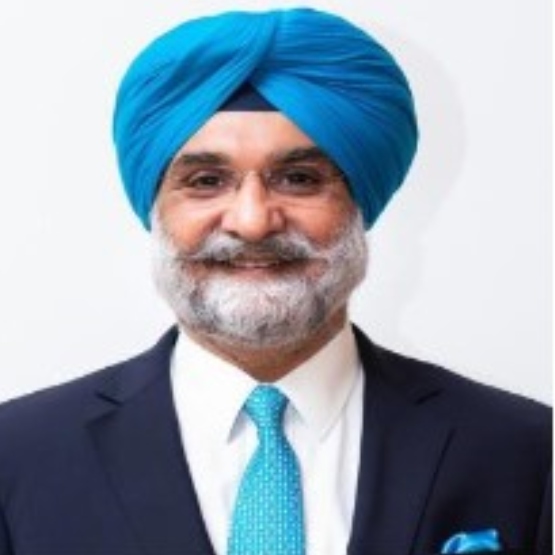
H.E. Taranjit Singh Sandhu
Ambassador of India to the United States
In a distinguished career spanning over thirty years in the Indian Foreign Service since 1988, Ambassador Taranjit Singh Sandhu is one of the most experienced Indian diplomats on US affairs. Ambassador Sandhu assumed charge as Ambassador to the United States on February 3, 2020. Ambassador Sandhu presented his credentials to the President of the United States of America on 6 February 2020.
Ambassador Sandhu has served in the Indian Mission in Washington DC twice earlier. He was Deputy Chief of Mission at the Embassy of India in Washington DC from July 2013 to January 2017. Earlier, he was First Secretary (Political) at the Embassy of India, Washington, DC responsible for liaison with the United States Congress from 1997 to 2000. He has also been at the Permanent Mission of India to United Nations, New York from July 2005 to February 2009.
Ambassador Sandhu studied at The Lawrence School, Sanawar and graduated with History Honors from St. Stephens' College, Delhi. He pursued a master’s degree in international relations at the Jawaharlal Nehru University, New Delhi.
Mr. Amit Prothi (Session Moderator)
Director General, Coalition for Disaster Resilient Infrastructure (CDRI)
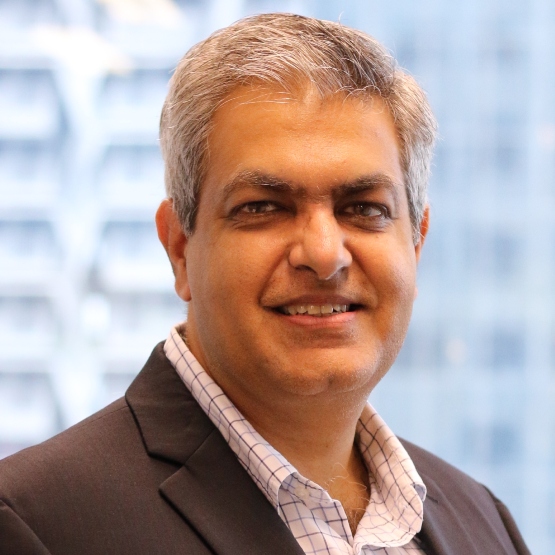
Mr. Amit Prothi (Session Moderator)
Director General, Coalition for Disaster Resilient Infrastructure (CDRI)
Mr. Prothi brings a wealth of international experience and expertise on climate and disaster resilience issues. He is an international expert with nearly 25 years of progressive leadership in the fields of urban planning and resilient infrastructure, with experience across more than 15 countries in North America, Asia and Europe. Mr Prothi has worked with AECOM, one of the largest infrastructure advisory firms, was a consultant to the Asian Development Bank and the World Bank and worked with global thinktanks and philanthropic organizations such as the Atlantic Council and the 100 Resilient Cities program. Mr. Prothi holds a bachelor’s in architecture from the School of Planning and Architecture in Delhi, and a dual Masters in Regional Planning and Landscape Architecture from the University of Massachusetts at Amherst. He has also pursued doctoral studies in urban planning at the Massachusetts Institute of Technology.
Ms. Veena Reddy
Mission Director for India and Bhutan, United States Agency for International Development (USAID)
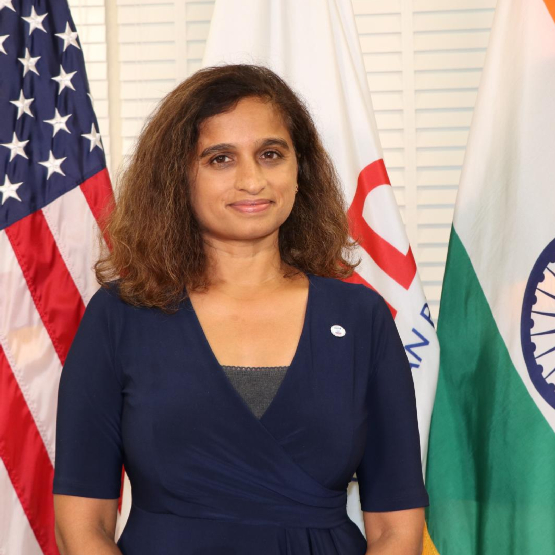
Ms. Veena Reddy
Mission Director for India and Bhutan, United States Agency for International Development (USAID)
Veena Reddy, a career member of the Senior Foreign Service, is the first Indian-American to lead USAID in India and Bhutan. Ms. Reddy recently served as USAID’s Mission Director in Cambodia, where she oversaw programs spanning food security, environment, health, education, child protection, and democracy and governance. Previously, Ms. Reddy worked as USAID’s Deputy Mission Director in Haiti. Prior to Haiti, Ms. Reddy served in Washington, D.C. as Assistant General Counsel, covering legal matters in Asia, the Middle East, and Afghanistan and Pakistan. Ms. Reddy also served at USAID Missions in Pakistan and in regional roles in Central Asia and Central America. Before her federal government service, Ms. Reddy was a corporate attorney in New York, London, and Los Angeles. Ms. Reddy holds a J.D. from Columbia University School of Law and an M.A. and B.A. from the University of Chicago.
Prof. Anand Patwardhan
Professor, Senior Fellow Center for Global Sustainability, University of Maryland
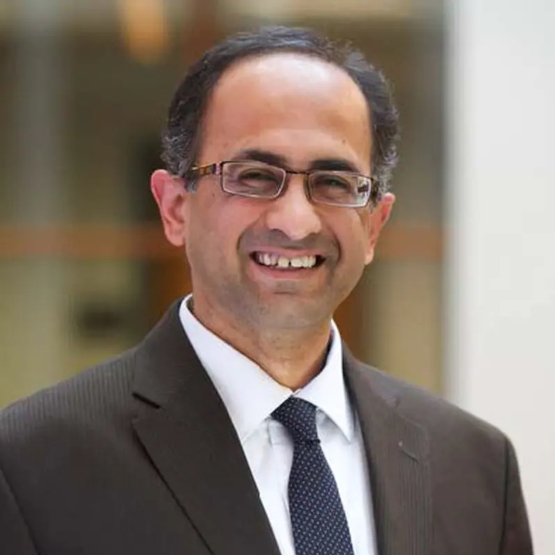
Prof. Anand Patwardhan
Professor, Senior Fellow Center for Global Sustainability, University of Maryland
Dr Anand Patwardhan is a Professor in the School of Public Policy at the University of Maryland, College Park.
He has been a coordinating lead author for the IPCC, and a member of the Scientific and Technical Advisory Panel of the Global Environmental Facility. He currently serves as co-chair of the Science Committee of the World Adaptation Science Program, and co-chair of the Adaptation Research Alliance.
He was earlier a Professor at the Indian Institute of Technology-Bombay. His research focused on mitigation and adaptation responses to climate change, and the assessment of vulnerability and adaptation, as well as broader issues of science, technology, and innovation policy.
Dr Patwardhan has a BTech (Electrical Engineering) from IIT-Bombay and an MS (Civil Engineering) and PhD (Engineering and Public Policy), both from Carnegie Mellon University.
Ms. Amy Kirschenbaum Swers
Senior Climate Infrastructure Advisor , U.S. Agency for International Development
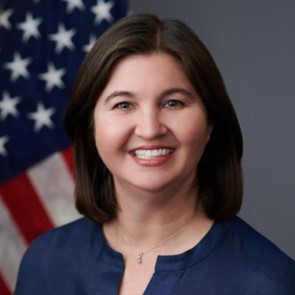
Ms. Amy Kirschenbaum Swers
Senior Climate Infrastructure Advisor , U.S. Agency for International Development
Amy Kirschenbaum Swers currently serves as Senior Climate Infrastructure Advisor for the U.S. Agency for International Development. She also co-leads the Infrastructure Working Group for the President’s Emergency Plan for Adaptation and Resilience (PREPARE) and serves on USAID’s Coalition for Disaster Resilience Infrastructure (CDRI) Advisory Council. Previously, she has held leadership roles at the U.S. Trade and Development Agency, the Inter-American Foundation, and the Millennium Challenge Corporation, as well as in the private sector working for Fortune 500 biotech and telecommunications companies. As a consultant, she has also provided strategic advisory services to The Rockefeller Foundation, the U.S. Department of State, and the Woodrow Wilson International Center for Scholars. In these roles, Amy has served as a bridge and translator – whether between sectors, business units, or countries.
Amy earned dual Master’s degrees from the University of Texas-Austin in public policy and Latin American studies and a B.A. from Yale University. Fluent in Spanish and Portuguese, Amy has lived in six Latin American and European countries, and received a Fulbright fellowship to carry out graduate fieldwork in Brazil and the Southern Cone.
Ms. Bella Tonkonogy
U.S. Director, Climate Policy Initiative

Ms. Bella Tonkonogy
U.S. Director, Climate Policy Initiative
Bella Tonkonogy is U.S. Director at Climate Policy Initiative, an analysis and advisory international non-profit organization working at the nexus of finance and policy for climate change. She oversees research and new initiatives across CPI’s climate finance workstreams including investment trends analysis, financial sector alignment and effectiveness, and innovative finance. Bella previously oversaw energy and environment investments at the U.S. Department of the Treasury and was a climate economist at the U.S. EPA and OECD. She holds an MBA from MIT Sloan School of Management, an MSc from Imperial College London, and a B.A. from the University of California-Berkeley.
Ms. Chloe Demrovsky
President, and CEO at Disaster Recovery Institute International

Ms. Chloe Demrovsky
President, and CEO at Disaster Recovery Institute International
Chloe Demrovsky is a globally recognized, award-winning expert in risk and resilience and serves as the youngest and first female President and CEO of Disaster Recovery Institute International. She is a senior Forbes contributor, has been interviewed on all the major TV news networks, and has served as a source for The Associated Press, BBC, USA Today, The Financial Times, ABC News, and others. She has presented at 150+ events across five continents and briefed government bodies including the US Congress, the European Commission, and the UN. She is a professor at NYU and the first Executive in Residence in the Global Affairs Master’s Program Global Economy Concentration, a term member of the Council on Foreign Relations, a Crain’s New York 2023 Notable Leader in Sustainability, a US-Japan Foundation Scott M. Johnson Fellow, a French-American Foundation 2019-22 Young Leader, a British-American Project Fellow, and a Board Director for DRI Foundation, Bard College at Simon's Rock Board (Vice-Chair), the French-American Foundation, Plastic Omnium, and formerly for United Nations Office for Disaster Risk Reduction (UNDRR) ARISE. She speaks four languages, has traveled to 50+ countries and lives in New York with her husband and son.
Ms. Christina Cassotis
CEO, Pittsburgh International Airport
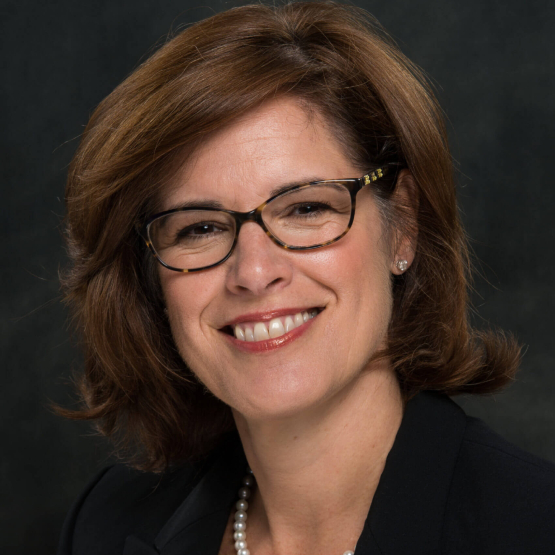
Ms. Christina Cassotis
CEO, Pittsburgh International Airport
Christina Cassotis is Chief Executive Officer of the Allegheny County Airport Authority (ACAA), which operates Pittsburgh International Airport (PIT) and Allegheny County Airport (AGC).
Under Christina’s leadership, PIT has transformed into an industry-changing origin-and-destination airport with record growth. She has recruited multiple new domestic and international carriers for passenger and cargo service, including during the Covid-19 pandemic. AGC has also experienced its own renaissance, capitalizing on the growth of private flying.
Christina is focused on making PIT one of the most accessible airports in the world for all – one that is built by and for Pittsburgh. Under her leadership, ACAA is constructing a new, state-of-the-art terminal, scheduled to open in early 2025.
Her innovation-centric approach led to the creation of PIT’s microgrid, which has made the airport one of the most resilient in the world, and the development of Presley’s Place, a space dedicated to people with sensory challenges. Her nationally recognized approach to workforce development provides access to airport opportunities, on-site skills training and childcare. Christina’s focus on innovation for the passenger experience led her to establish xBridge, a tech and startup incubator at PIT.
Christina has an MBA from MIT’s Sloan School of Management and bachelor’s degree from University of Massachusetts
Dr. Evangeline Inniss-Springer
Director, Disaster Risk Reduction Centre (DRRC), The University of West Indies
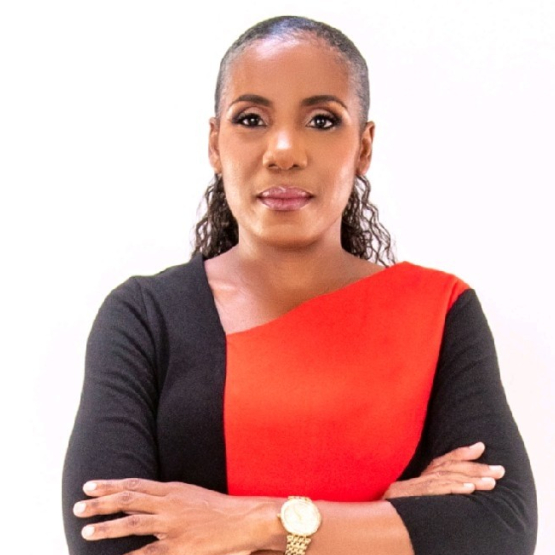
Dr. Evangeline Inniss-Springer
Director, Disaster Risk Reduction Centre (DRRC), The University of West Indies
Dr Inniss-Springer is a Certified Emergency Manager and Certified Continuity Manager with over 25 years’ experience in the disaster risk management having worked at the national, regional and international levels. She currently sits as the Director of The UWI Disaster Risk Reduction Centre, and has extensive and diverse experience in capacity development, leadership and strategic planning, work programme development and project management, statistical analysis, logistics supply management, proposal development and grant writing, total quality management and process analysis.
Dr. Inniss-Springer holds a Master’s Degree in Health Studies from the University of Alabama and a Doctor of Health Sciences from A.T Still University in Missouri with a focus on Leadership and Organisational Behaviour, and has a plethora of regional experience, having worked with worked with the Caribbean Disaster Emergency Response Agency (CDERA), the Caribbean Disaster Emergency Management Agency
(CDEMA), the Department of Disaster Management in the British Virgin Islands (The BVI) and the Pan American Health Organization (PAHO).
She has served on several national, regional and international committees, working groups and task forces focusing on enhancing capacity development, partnership and programme management, policy development, operations management and education in emergencies.
Dr. Ede ijjasz (Session Moderator)
Senior Fellow, the Brookings Institution
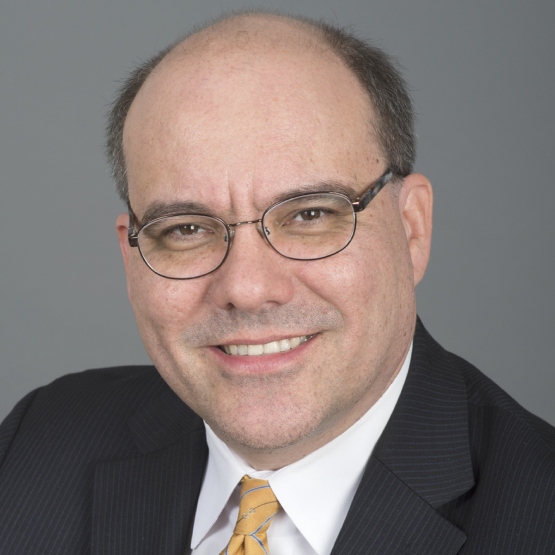
Dr. Ede ijjasz (Session Moderator)
Senior Fellow, the Brookings Institution
Mr. Ijjasz was senior director at the World Bank responsible for the global portfolio on disaster risk management. He is currently a Senior Fellow at the Brookings Institution, member of several board of directors, and senior advisor to international organizations, with special emphasis on climate resilience and adaptation.
Mr. Eric Letvin
Deputy Assistant Administrator of Mitigation, FEMA
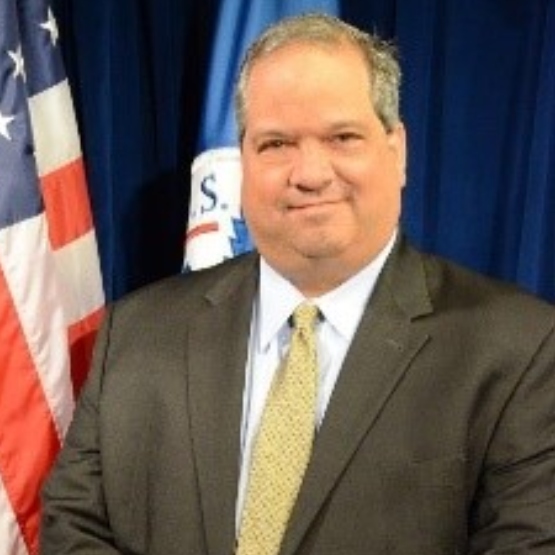
Mr. Eric Letvin
Deputy Assistant Administrator of Mitigation, FEMA
Mr. Letvin serves as the Federal Emergency Management Agency’s Deputy Assistant Administrator for Mitigation. Mr. Letvin directs FEMA’s pre- and post-disaster mitigation programs that support sustainable, disaster-resilient communities, to avoid or reduce the loss of life, property, and financial impacts of natural hazards. These programs include the Building Resilient Infrastructure and Communities Grant Program, the Hazard Mitigation Grant Program, the Flood Mitigation Assistance grants, the Floodplain Management component of the National Flood Insurance Program (NFIP), and the Community Rating System under the NFIP. In addition, Mr. Letvin leads the hazard mitigation disaster workforce cadre and overall disaster operations for the Federal Insurance and Mitigation Administration.
Dr. Francisca M. Rojas
Academic Director, Bloomberg Center for Public Innovation at Johns Hopkins University
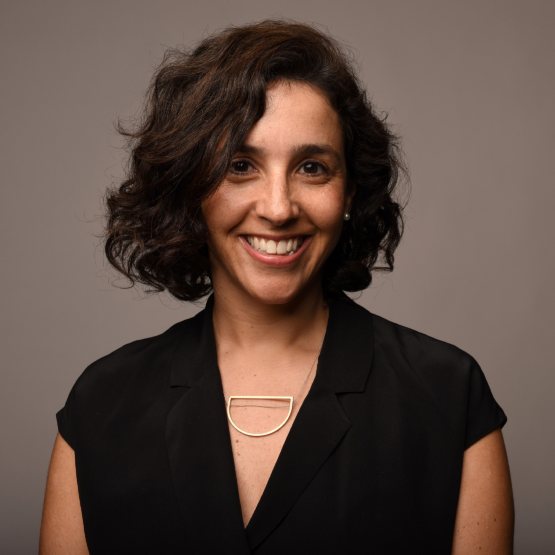
Dr. Francisca M. Rojas
Academic Director, Bloomberg Center for Public Innovation at Johns Hopkins University
Francisca M. Rojas, Academic Director for the Bloomberg Center for Public Innovation at Johns Hopkins, leverages nearly 20 years of experience to connect cutting edge research with city hall practice to create better results for communities. Previously the Lead Housing and Urban Development Specialist in Colombia and Argentina for the Inter-American Development Bank (IDB), Francisca’s career in urban planning and finance have supported work impacting quality of life for residents in over 100 cities in Latin America. Francisca also served as a research director at the Harvard University Ash Center for Democratic Governance and Innovation and a program manager for the American Institute of Architects. As a project planner for the Washington D.C. Office of Planning, she collaborated on award-winning redevelopment plans for the Anacostia Waterfront, which have generated over US$10 billion of public and private investment. Francisca is a graduate of the Massachusetts Institute of Technology (MIT), where she received her Ph.D. in Urban and Regional Planning and Master of City Planning. She also completed a postdoctoral fellowship at Harvard University’s Kennedy School of Government.
Dr. Gabriel Bernal
Chief Scientific Officer, INGENIAR
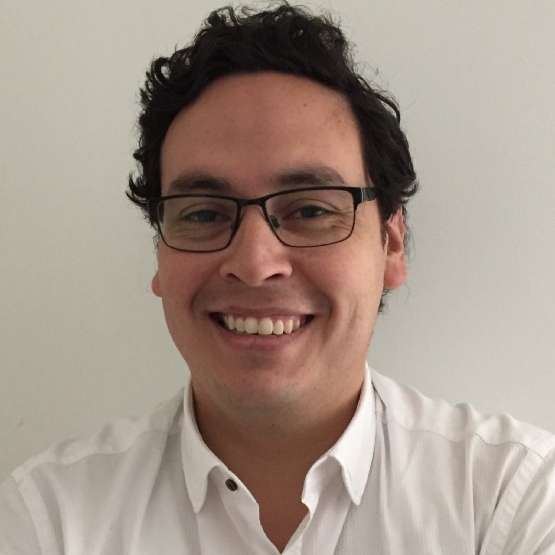
Dr. Gabriel Bernal
Chief Scientific Officer, INGENIAR
Dr. Bernal is Chief Scientific Officer at INGENIAR. He is an expert in catastrophe risk modeling, with more than 15 years of experience in the development of CAT risk models for earthquakes, tsunamis, tropical cyclones, droughts, floods, volcanic eruptions, landslides, wildfires, storms, extreme temperatures, and pandemics, that are currently implemented in the CAPRA ROBOT software platform, of which he is the main developer. He led the development of the Global Risk Model for the UNDRR GAR 13, GAR 15, and GAR 17 ATLAS reports, covering more than 190 countries.
His interests are related to the extension of CAT risk assessment from a purely probabilistic view to a random sets approach, allowing the analytical incorporation of background trends and variables that exhibit deep uncertainty, like climate change, and expressing risk through imprecise probability metrics. Furthermore, he is Professor of Earthquake Engineering and Disaster Risk Modeling at the National University of Colombia.
Ms. Gillian Caldwell
Chief Climate Officer and Deputy Assistant Administrator

Ms. Gillian Caldwell
Chief Climate Officer and Deputy Assistant Administrator
Gillian serves as USAID’s Chief Climate Officer and is responsible for directing and overseeing all climate and environment work across the agency. She also serves as Deputy Assistant Administrator, overseeing REFS’ Center for Energy, Infrastructure, and Cities (REFS/CEIC); the Office of Environmental and Social Safeguarding (REFS/ECSS); Center for Climate Positive Development (REFS/CCPD); and the Center for Natural Environment (REFS/CNE).
Ms. Caldwell has worked to protect human rights and the environment throughout her career. Prior to joining USAID, she served as the CEO of Global Witness, which has a focus on tackling climate change and deploys investigations into corruption and natural resource extraction to drive systems change worldwide. From 2007-2010, she launched and led 1Sky, a highly collaborative cross-sector campaign with over 600 allied organizations to pass legislation in the U.S. to address the climate crisis. Gillian also has extensive experience consulting in the areas of strategic planning and organizational development with over 70 non-profits, foundations, and universities.
Ms. Caldwell has a B.A. from Harvard University and a J.D. from Georgetown University, where she was recognized as a Public Interest Law Scholar. She has received a series of awards recognizing her work as a leading global Social Entrepreneur.
Mr. Glenn Dolcemascolo
Director of Programs, Huairou Commission
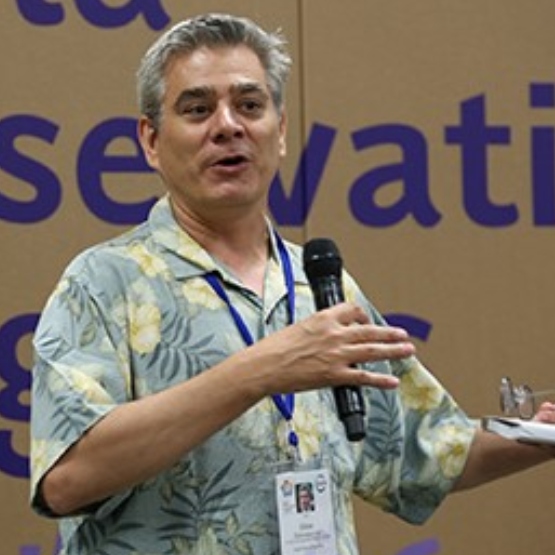
Mr. Glenn Dolcemascolo
Director of Programs, Huairou Commission
Glenn Dolcemascolo assumed the key position of Director of Programs and brings twenty years of experience working on issues such as community-led development, environment and climate change. Glenn’s nine years with the United Nations Office for Disaster Risk Reduction, spanned the critical period in which the Sendai Framework for Disaster Risk Reduction, the Paris Climate Change Agreement and the 2030 Agenda were adopted. A founding member of the Global Community Practitioner’s Platform Advisory Board, he has collaborated with the Huairou Commission and developed a deep understanding of our work and organization. Glenn’s skills run the gamut from strategic guidance and high-level advocacy to managing a global education and training institute. As the Director of Programs, Glenn leads strategic development and implementation of global programs and advocacy.
Dr. H. Kit Miyamoto
CEO and Humanitarian Coordinator, Miyamoto International
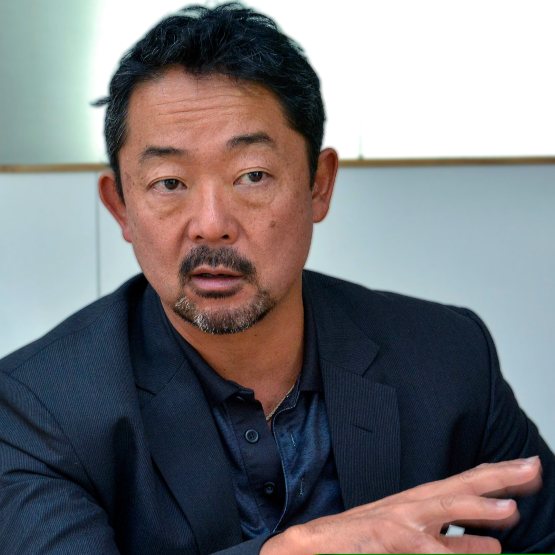
Dr. H. Kit Miyamoto
CEO and Humanitarian Coordinator, Miyamoto InternationalDr. H. Kit Miyamoto
CEO and Humanitarian Coordinator, Miyamoto International
Dr. Miyamoto is a world-leading expert in disaster resiliency, response and reconstruction. He provides expert engineering and policy consultation to the World Bank, USAID, UN agencies, governments and private sector. He is a structural engineer, California Seismic Safety Commissioner, and a Global CEO of Miyamoto International.
Dr. Miyamoto has led numerous response and reconstruction projects globally, spanning from the 2010 Haiti earthquake to earthquakes in Ecuador, Nepal, Indonesia, Turkey, Morocco, Afghanistan, New Zealand, Mexico, and Puerto Rico. He also led critical seismic risk reduction programs in Turkey, the Philippines, Romania and Bangladesh, as well as disaster risk mitigation policy work in Colombia, Costa Rica, Ecuador and El Salvador. He is one of the most respected minds in disaster resiliency and recovery.
Dr. Miyamoto holds advance degrees from the Tokyo Institute of Technology and California State University, where he has been recognized as a Distinguished Alumni. His team won the Engineering News-Record’s “Best Global Project” award four times and the U.S. Presidential “E” award. Major media such as ABC, CNN, LA Times, NY Times and Rolling Stone have profiled him. He was also featured in the “Designing for Disaster” exhibit at the National Building Museum.
Mr. Hemang Priyavadan Jani
Senior Adviser to Executive Director (Bangladesh, Bhutan, India & Sri Lanka), World Bank
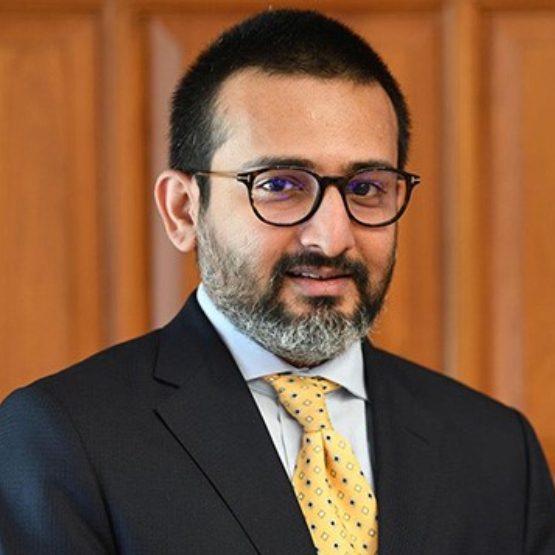
Mr. Hemang Priyavadan Jani
Senior Adviser to Executive Director (Bangladesh, Bhutan, India & Sri Lanka), World Bank
With over two decades of experience at national and international levels, Mr. Hemang Jani is a seasoned public policy professional. He has worked in public policy, governance, and innovation systems. Hemang has significantly contributed to improving public service delivery using technology, designing national-level governance and innovation frameworks, and enabling private sector development at the state, national, and international levels.
As the Secretary to the Capacity Building Commission of India, Hemang designed India's National Civil Service Capacity Building framework, which aimed to cover 3 million civil servants in the federal government and 22 states of India. He also designed and piloted multiple programs and interventions to create and improve the civil service capacity-building eco-system. Additionally, he crafted and implemented National Standards for Civil Service Training Institutions (NSCSTI) and developed a material Capacity Building Plan approach and methodology for the Government of India.
During his tenure as an Officer on Special Duty (Knowledge and Innovation) in the Prime Minister’s office, Government of India, Hemang nurtured the Atal Innovation Mission, a nationwide innovation agency fostering innovation and entrepreneurship eco-system in India. Hemang has also worked as a Senior Private Sector Specialist at the World Bank Headquarters in Washington DC, USA, where he focused on innovation and entrepreneurship programs in South Asia.
He serves on various committees of the government. He is a board member of Atal Innovation Mission (AIM), Karmayogi Bharat Corporation (an SPV under Mission Karmayogi), and the Administrative Staff College of India (ASCI). Currently, Hemang is Senior Adviser to the Executive Director (Bangladesh, Bhutan, India & Sri Lanka), World Bank, Washington DC.
Dr. Jan Whittington
Associate Professor, University of Washington

Dr. Jan Whittington
Associate Professor, University of Washington
Dr. Jan Whittington is an Associate Professor of the Department of Urban Design and Planning, the founding Director of the Urban Infrastructure Lab (https://uil.be.uw.edu/), Associate Faculty at the Tech Policy Lab, at the University of Washington, Seattle, and a former strategic planner for the international infrastructure developer, Bechtel Corporation. She is a global expert in infrastructure economics, climate-smart capital planning, and city climate finance. For the World Bank’s City Creditworthiness Initiative, she has worked with municipalities in 23 countries at the intersection of climate change and capital planning. Her publications address climate change through capital investment planning, the evaluation of smart city infrastructure systems, and the efficiency of public-private contractual arrangements for infrastructure. Her PhD (2008) is in City and Regional Planning from the University of California, Berkeley, where she was advised by economic Nobel laureate Oliver Williamson. She holds bachelor degrees in Biology and Environmental Studies from the University of California, Santa Cruz (1987) and a masters from California Polytechnic State University, San Luis Obispo (1993).
Dr. Joe Leitmann
Executive Director, University of California Disaster Resilience Network
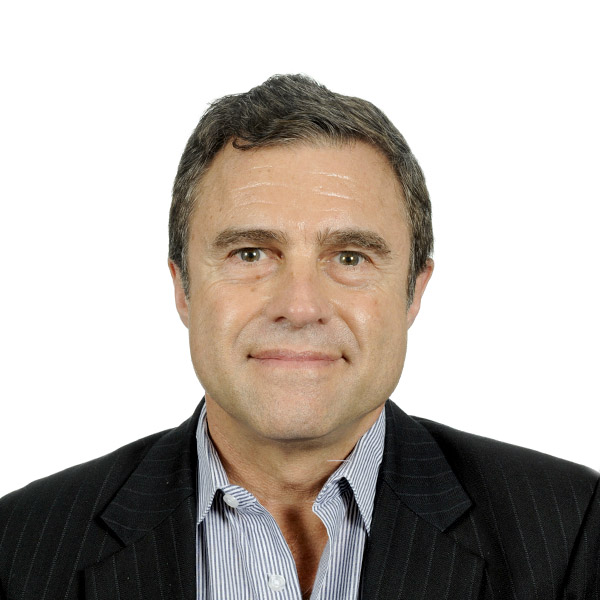
Dr. Joe Leitmann
Executive Director, University of California Disaster Resilience Network
>Dr. Joe Leitmann is an international specialist on resilience and founder of Rapid Assessment, Planning and Implementation for Development (RAPID) LLC. He is the Executive Director of the University of California Disaster Resilience Network and provides consulting services to the United Nations, the World Bank and the U.S. Foreign Service Institute.
Prior to retirement from World Bank in 2020, Dr. Leitmann was the Lead Disaster Risk Management Specialist, heading teams on Resilient Recovery and Urban Resilience at the Global Facility for Disaster Reduction and Recovery. During his career at the Bank, Joe led or contributed to:
- Spearheading financing for renewable/clean energy and energy for the poor before it was fashionable (in the 1980s)
- Developing the first tools and strategies for urban environment projects, resulting in a multi-billion dollar portfolio
- Leading an innovative program on rainforest conservation that facilitated the return of project lending in the Brazilian Amazon after a 20-year hiatus
- Managing over $1 billion in multi-donor funds for effective post-disaster reconstruction following the tsunami in Indonesia and earthquake in Haiti
- Forging the first integrated climate change program in Indonesia, including early development of REDD+ methods and markets
He has worked in over 40 countries and held long-term assignments in Turkey, Brazil, Indonesia, Haiti, and the South Pacific (the latter as a U.S. Peace Corps volunteer). Dr. Leitmann holds a PhD in city and regional planning from UC Berkeley and a Master’s from the Harvard Kennedy School. He is the author of a textbook on urban environmental management (SUSTAINING CITIES), co-author of INVESTING IN URBAN RESILIENCE and numerous articles.
Dr. Juan Pablo Bonilla
Manager - Climate Change and Sustainable Development Sector (CSD), Interamerican Development Bank
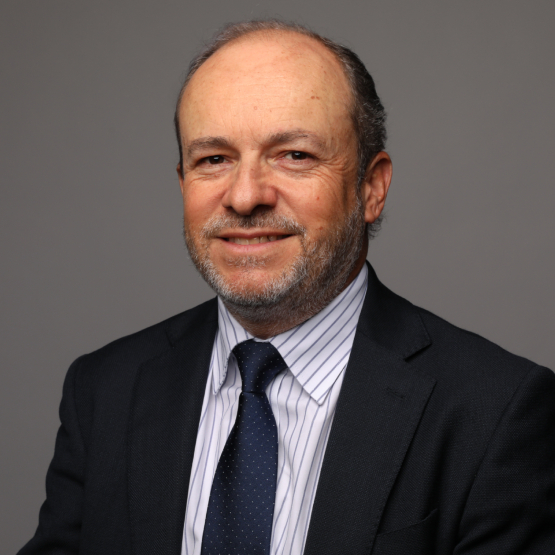
Dr. Juan Pablo Bonilla
Manager - Climate Change and Sustainable Development Sector (CSD), Interamerican Development Bank
Juan Pablo Bonilla is the Manager of the Interamerican Development Bank’s Climate Change and Sustainable Development Sector (CSD). Previously, he served as Chief of Staff to the Executive Vice President of the IDB. Dr. Bonilla has worked on environmental sustainability, climate change and energy for more than 20 years, leading the IDB's Sustainable Energy and Climate Change Initiative, a major strategic step for integrating climate change and sustainability as a priority for the Bank. Before joining the IDB, he worked as Senior Specialist at the World Bank, and was a member of the United Nation's CDM Executive Board.
In Colombia, after serving as the Executive Director of a new think tank Fundesarrollo, and as National Environmental Manager of ANDI, Dr. Bonilla launched new initiatives such as the National Climate Change Policy and the National Biotechnology Policy as principal advisor to the country's Vice President. Dr. Bonilla served as Deputy Minister of Environment, and acting Minister of Environment, Housing and Territorial Development.
Dr. Bonilla obtained a B.A. in Civil Engineering from the Universidad Javeriana in Bogotá, Colombia, and then received a M.Sc. in Engineering Management and Systems Engineering and a Ph.D. in Environmental and Energy Management from George Washington University.
Ms. Kathy Baughman McLeod
CEO, Climate Resilience for All
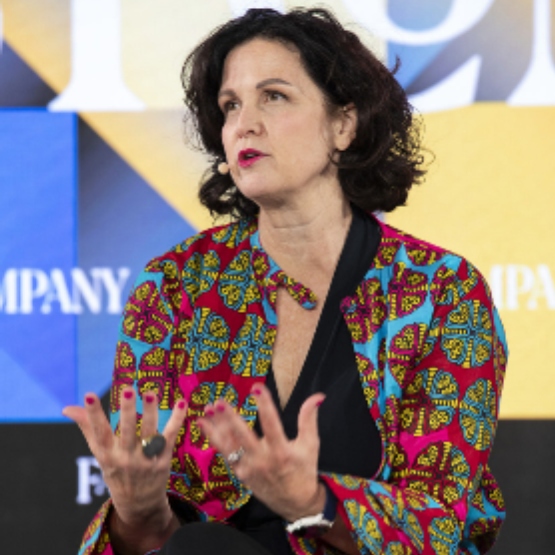
Ms. Kathy Baughman McLeod
CEO, Climate Resilience for All
Kathy Baughman McLeod is a CEO of Climate Resilience for All, a gender-focused, climate adaptation nonprofit dedicated to the protection of people and livelihoods from extreme heat, and all its impacts, in the world's most vulnerable communities. She is the founding and former Director of the Arsht-Rock Resilience Center - built to reach one billion people worldwide with climate-resilience solutions by 2030, with a special focus on society’s most vulnerable. She launched the Center’s extreme heat work that is delivering impact across early-warning, policy, finance, and on-the-ground solutions, including the appointment of chief heat officers in cities around the world. Additionally, she spearheaded the global push to name and categorize heat waves to save lives and build a new, essential culture of awareness and preparation and launched the first “extreme heat income insurance” for thousands of poor, heat-exposed women workers in India. Under Kathy’s leadership, Arsht-Rock also launched the United Nations Climate Convention’s “Race to Resilience” campaign and Resilience Pavilion at COPs 26, 27, and 28.
Baughman McLeod was Bank of America’s Global Executive for Environmental and Social Risk, the Global Managing Director for Climate Risk and Resilience at The Nature Conservancy, and Deputy Chief of Staff to Florida’s Chief Financial Officer, while also serving on the Florida Energy & Climate Commission for two terms. She is a member of the US Government’s Federal Emergency Management Agency’s National Advisory Council as the agency’s first climate specialist served on the World Economic Forum’s Global Commission on “BiodiverCities by 2030,” is a member of the Operating Committee of the Insurance Development Forum, a member of the Global Commission for Urban SDG Finance, and of the Pathfinder International President’s Council.
Kathy sits on the advisory boards of Climate Alpha and Terra Alpha, a climate risk analytics firm and an environmentally focused investment management company, respectively. She is the recipient of the Fuqua School of Business 2021 “Leader of Consequence” award and a Policy Fellow of the French Foreign Ministry. She holds an MBA from Duke University and an MS in Geography from Florida State University.
Ms. Karen Bennett
Consultant, United States Forest Service (USFS)
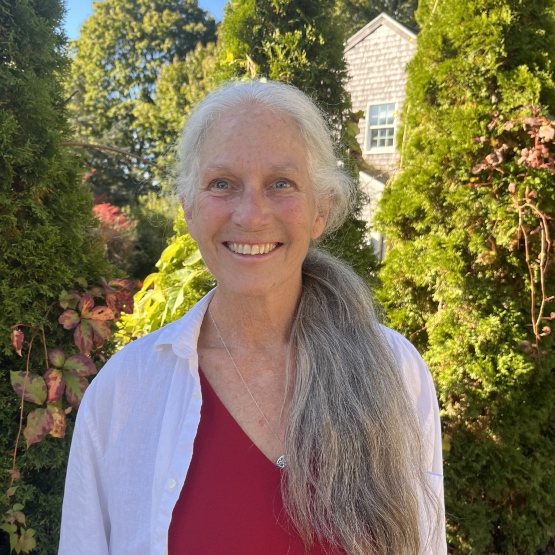
Ms. Karen Bennett
Consultant, United States Forest Service (USFS)
Karen has worked in both the private and public sectors specializing in soils, hydrology, geomorphology, ecology, and watershed management. She has designed and implemented many watershed restoration projects for the US Forest Service. She worked in Central America on disaster recovery, Morocco on flood and erosion mitigation, and in Russia on salmon habitat restoration. Her work with small island nations in the Pacific focused on ridge-to-reef restoration including protection and restoration of mangrove forests. She has consulted in Vietnam, India, and Brazil on ecosystem services relating to hydropower and water supply company payments to upland farmers and developing the forestry component for Vietnam’s Green Growth Strategy. She worked with USAID and the Government of Nepal to assess the condition of natural resources as a baseline for a $25 million USAID project (PAANI). She organized and was the lead scientist on an expedition of the Karnali River in western Nepal to develop an integrated management framework and strategies for river conservation to protect aquatic biodiversity from hydropower development.
She is currently a consultant to the US Forest Service International Program office as the lead author and science advisor for development of the “Nature-based Solutions for Disaster and Climate Resilient Infrastructure chapter for the Coalition for Disaster Resilient Infrastructure’s flagship report.
Prof. Luis Cifuentes
Associate Professor, Department of Industrial and Systems Engineering, Pontifical Catholic University of Chile
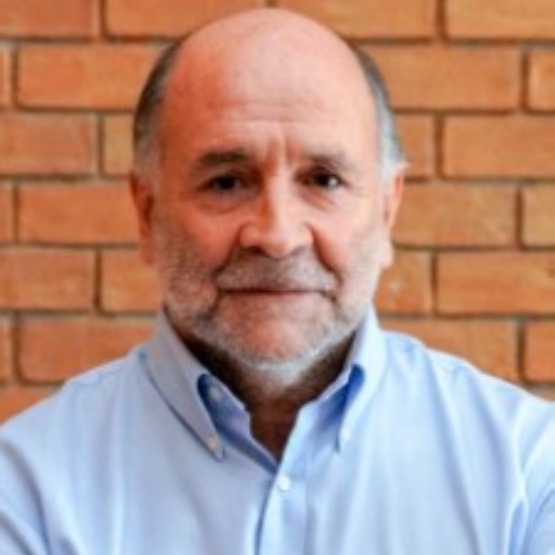
Prof. Luis Cifuentes
Associate Professor, Department of Industrial and Systems Engineering, Pontifical Catholic University of Chile
Luis Cifuentes has a Masters in Civil Engineering and hold a Ph.D in Engineering and Public Policy from Carnegie Mellon University, USA.
He is a professor at the Industrial and Systems Engineering Department at the Catholic University of Chile.
Before, he was an associate professor and associate researcher at the Department of Engineering and Public Policy, Carnegie Mellon University. His teaching includes courses on Environmental Management, Risk Analysis, Environmental Economics and Project Evaluation. He supervised numerous Masters and Doctoral Theses in these areas, as well as in Impact of Air Pollution and Risk Perception.
He was also a consultant for the Economic Commission for Latin America and the Caribbean, for the Clean Air Initiative for Latin American Cities, the World Bank, the Inter-American Development Bank. Cifuentes was a lead author for the third and fourth IPCC report and a active contributor to the US EPA’s Integrated Environmental Strategies. He authored studies for CONAMA, CNE, SECTRA and various private sector companies. He is a member of the Society for Risk Analysis, the Air and Waste Management Association, and the International Society of Environmental Epidemiology, among others.
H.E. Max Puig
Executive Vice President of the National Council for Climate Change and Clean Development Mechanism (CNCCMDL), Dominican Republic
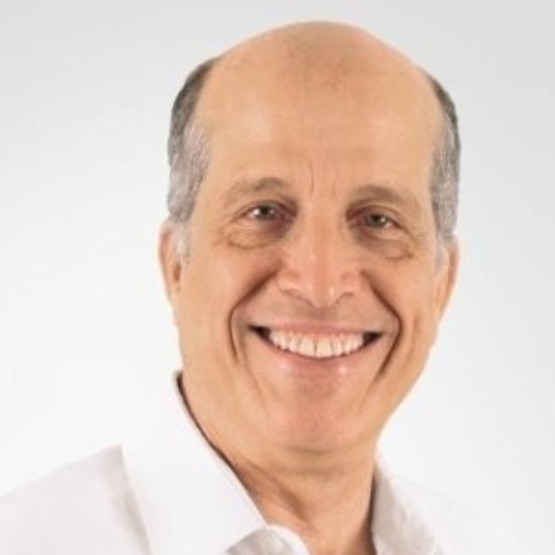
H.E. Max Puig
Executive Vice President of the National Council for Climate Change and Clean Development Mechanism (CNCCMDL), Dominican Republic
H.E. Max Puig is the Executive Vice President of the National Council for Climate Change and Clean Development Mechanism (CNCCMDL) since August 2020. CNCCMDL is the body in charge of outlining the public policies on climate change in the Dominican Republic. H.E. Puig was a candidate for the Presidency of the Dominican Republic in 2012.
He is Professor at the Autonomous University of Santo Domingo (UASD) since 1971 and Member of the Academy of Sciences of the Dominican Republic since 1974.
Mr. Puig was Minister of Labour from 2008 to 2011; Minister of Environment and Natural Resources from 2004 to 2007; Secretary of State and National Authorising Officer of the European Development Funds in the period 1996 – 2000, and Senator for his native Puerto Plata in the period 1990 – 1994.
H.E. Puig holds two bachelor's degrees, in Public Law and Sociology and a doctorate in Public Law and Political Science.
Mr. Manish Bapna
President & CEO, NRDC
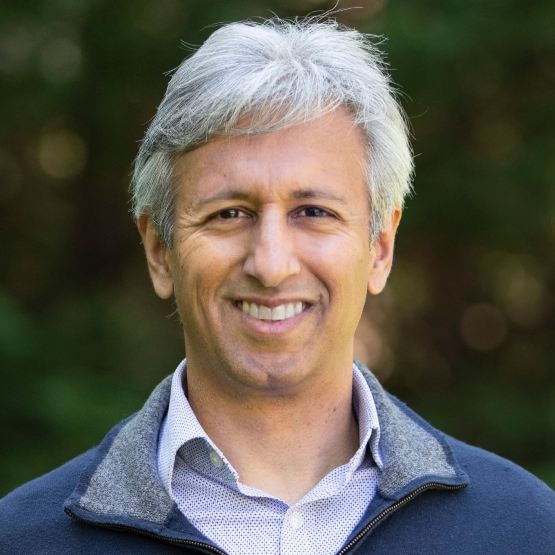
Mr. Manish Bapna
President & CEO, NRDC
Mr. Bapna joined NRDC as President and Chief Executive Officer in August 2021. With more than 700 attorneys, scientists, advocates and policy experts on staff, as well as three million supporting members, NRDC is confronting the interlocking climate, health, nature and inequity crises facing the world today.
Prior to joining NRDC, Bapna’s leadership roles have focused on scaling solutions at the intersection of the environment and human development. He served as a senior economist at the World Bank for seven years, where he designed and implemented water, forestry and rural development projects in Asia and Latin America; then as executive director of the Bank Information Center (BIC), a nonprofit that works to protect the rights of local communities and the environment from the negative impacts of projects and policies financed by development banks; then as executive vice president and managing director of the World Resources Institute (WRI) for 14 years.
Bapna holds master’s degrees in business and political and economic development from Harvard University and a bachelor’s degree in electrical engineering from MIT.
Dr. Pepukaye Bardouille
Director, Bridgetown Initiative and Special Advisor on Climate Resilience, Prime Minister’s Office, Government of Barbados
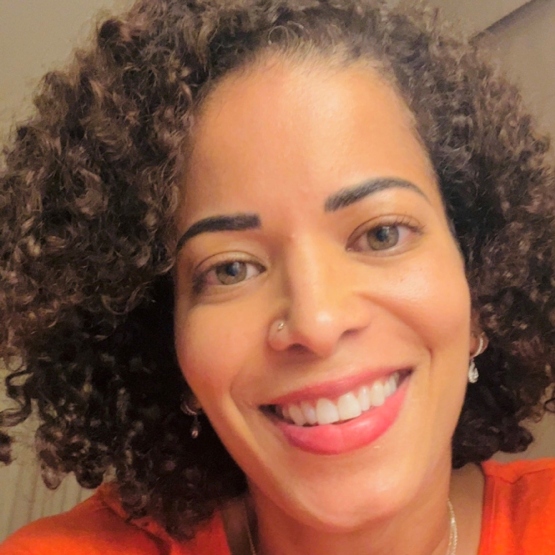
Dr. Pepukaye Bardouille
Director, Bridgetown Initiative and Special Advisor on Climate Resilience, Prime Minister’s Office, Government of Barbados
Dr. Pepukaye Bardouille has worked for over two decades at the intersection of climate change and sustainable development globally. As founding Chief Executive Officer of the Climate Resilience Execution Agency for Dominica (CREAD) from 2018-2020, she was tasked with leading the transformation of Dominica into a climate resilient nation following the passage of Hurricane Maria. With the International Finance Corporation (IFC) from 2020-2023, she was Lead on Resilience in the Global Infrastructure Department, driving new approaches to renewable energy, water sector and urban resilience project development primarily in Small Island Developing States. From 2010-2018, she also championed IFC’s work to scale-up commercially viable business models for off-grid and mini-grid based electrification. Prior to that, with McKinsey & Company, she served national and international oil, gas and mining company CEOs in Africa, Europe and the Middle East on key challenges related to natural resource access and performance enhancement
Prof. Ravi Sinha
Professor, Department of Civil Engineering, Indian Institute of Technology Bombay, India

Prof. Ravi Sinha
Professor, Department of Civil Engineering, Indian Institute of Technology Bombay, India
Prof. Ravi Sinha is Professor and former Dean at the Indian Institute of Technology Bombay. A member of the Maharashtra State Disaster Management Authority since 2015, he is also the Chair of the appraisal committee for the Maharashtra State Disaster Risk Mitigation Fund.
Prof. Sinha is the Head of India’s delegation at ISO TC98, which is responsible for international standards on the design of structures. He also Chairs the Structural Safety Sectional Committee of the Bureau of Indian Standards (BIS) and is a member of BIS committees responsible for national standards on earthquake safety and tall buildings. He is also a member of the Bridges & Structures Standards committee of the Indian Roads Congress.
Prof. Sinha has extensive experience in urban disaster risk management and is also a co-author of the World Bank's Primer on Climate Resilient Cities. A Civil and Structural Engineer, Prof. Sinha’s research is mainly on earthquake engineering and disaster risk reduction.
Mr. Rory Linehan
Director of Engagement, Global Infrastructure Hub (GIH)
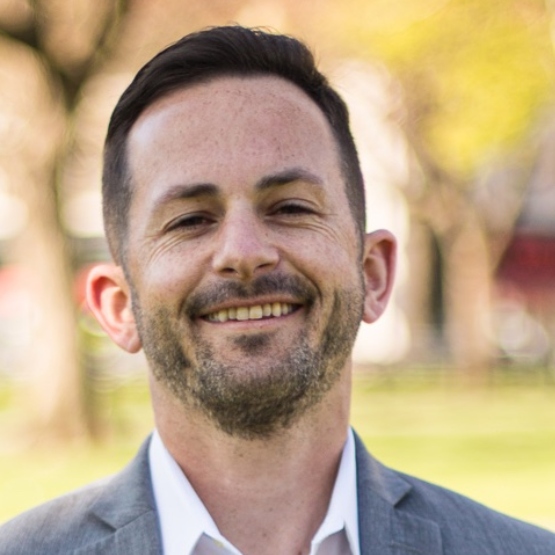
Mr. Rory Linehan
Director of Engagement, Global Infrastructure Hub (GIH)
Rory joined the GI Hub in July 2022 as Director of Engagement, leading global partnerships and stakeholder engagement. In this role, Rory is responsible the GI Hub’s partnerships with key public, private and multilateral infrastructure organizations, including governments, investors and MDBs. He also manages the GI Hub’s Private Sector Advisory Council, representing US$15 trillion in assets under management.
Rory brings over ten years of experience in international business. Before joining the GI Hub, Rory was the Regional Director of International Relations for APAC at Jacobs, where he forged new partnerships to support a regional portfolio of over US$2 billion from India to Australia. Before Jacobs, Rory managed the Australian Government’s Infrastructure Unit in the United States at the Australian Embassy in Washington DC.
Rory has held senior government and private sector roles in Australia, Canada, and the United States. A former civil servant and diplomat at Australia’s Department of Foreign Affairs and Trade, Rory has supported key Australian government priorities across the Indo-Pacific, including Australia’s Free Trade Agreements with China, Japan, Korea, and the Trans-Pacific Partnership.
He holds a bachelor’s degree in international business from the Australian National University, Canberra, and a master’s degree in international relations from Macquarie University, Sydney.
Dr. Samantha Alvis
Senior Education Advisor, Bureau for Asia, Technical Services, USAID

Dr. Samantha Alvis
Senior Education Advisor, Bureau for Asia, Technical Services, USAID
Dr. Samantha “Sam” Alvis is a senior education advisor for USAID’s Asia Bureau. Dr. Alvis’ previous role was the Senior Advisor for Higher Education in the Center for Education in USAID/Washington. In this role, she provided technical support to field offices across all five regions to design activities that engage higher education institutions, post-secondary students, and youth-led and youth-serving organizations and worked to advance higher education and youth programming across sectors within the Agency. She now supports this work focused on the Asia Region.
Prior to joining USAID, Dr. Alvis was the Director for International Development and Programs at the Association of Public and Land-grant Universities (APLU), where she oversaw a number of projects and initiatives related to the comprehensive internationalization of APLU member campuses.
Samantha completed her Ph.D. in international agricultural development and agricultural communications from Texas A&M University. Her dissertation research focused on the benefits and challenges of higher education development assistance.
Samantha completed her undergraduate and master’s degrees in agricultural education at the University of Arizona where she completed her student teaching on the Tohono O’odham Nation and was certified to teach agriculture and biology at the secondary level.
Dr. Stephane Hallegatte (Session Moderator)
Senior Climate Change Advisor, The World Bank
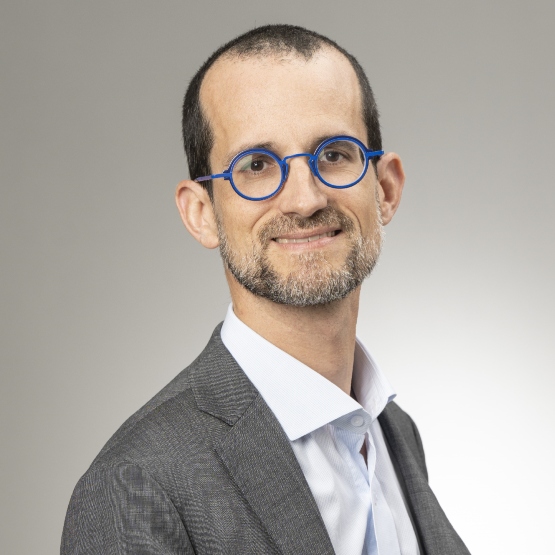
Dr. Stephane Hallegatte (Session Moderator)
Senior Climate Change Advisor, The World Bank
Stéphane Hallegatte is the Senior Climate Change Advisor of the World Bank Climate Change Group. He joined the World Bank in 2012 after 10 years of academic research. His research interests include the economics of natural disasters and risk management, climate change adaptation, urban policy and economics, climate change mitigation, and green growth. Mr. Hallegatte is the author of dozens of articles published in international journals in multiple disciplines and of several books.
H.E. Dr. Tapugao Falefou
Permanent Representative of Tuvalu to the United Nations
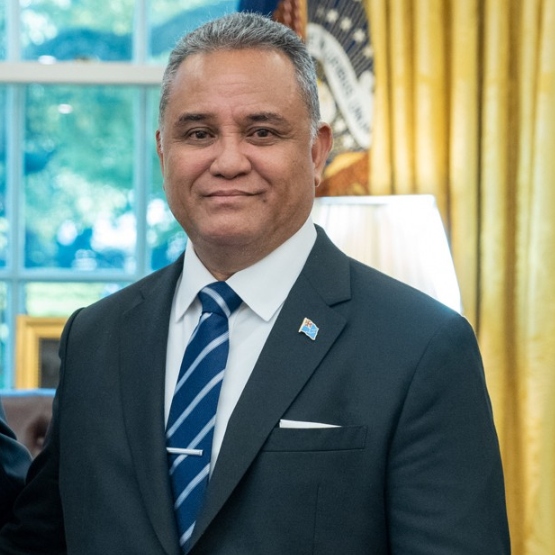
H.E. Dr. Tapugao Falefou
Permanent Representative of Tuvalu to the United Nations
Prior to his appointment as the Permanent Representatiove of Tuvalu to the United Nations in 2023, Mr. Falefou served since 2020 as Secretary to the Government of Tuvalu, with job functions ranging from Principal Adviser to the Prime Minister to Principal Adviser to the Cabinet, to Head of Tuvalu’s Public Service.
From 2019 to 2021, he was Principal Adviser to the Prime Minister in his capacity as Chair of the Pacific Islands Forum. From March 2020 to August 2021, he served as Chair of COVID-19 Regional Task Force, and he also co-chaired — alongside Tuvalu’s Prime Minister — the country’s national COVID-19 Task Force.
From August 2019 to March 2020, Mr. Falefou served as Tuvalu’s Permanent Secretary for Justice, Communication and Foreign Affairs. From August 2017 to July 2019, he was its Permanent Secretary for Communication and Transport. From January 2011 to January 2014, he was the country’s Permanent Secretary for Foreign Affairs, Trade, Tourism, Environment and Labour, and from September 2006 to December 2008, he was its Permanent Secretary for Communication, Transport and Tourism.
Mr. Falefou holds a doctoral degree from the University of Waikato in New Zealand, a master’s degree in diplomacy and international public policy from the Australian National University and a bachelor’s degree in public administration and management from the University of the South Pacific in Vanuatu, among other certifications
Ms. Tishka Francis
Head of SIDS Sub-Programme, OHRLLS

Ms. Tishka Francis
Head of SIDS Sub-Programme, OHRLLS
Tishka Francis is Head of the Small Island Developing States (SIDS) Sub-Programme in the United Nations Office of the High Representative for Least Developed Countries, Landlocked Developing Countries and Small Island Developing States (UN-OHRLLS), where she spearheads the work in support of the sustainable development of SIDS.
Previously, Ms Francis served in the Permanent Mission of The Bahamas to the United Nations in New York, as Deputy Permanent Representative, covering a range of issues related to SIDS, from climate change to international tax cooperation, in many different fora. She has held a number of high profile positions, playing a leading role in advancing the cause of SIDS at the United Nations and beyond.
Ms Francis holds degrees in Economics and Economic Policy Management, and is also trained in Global Diplomacy.
Ms. Victoria Salinas
Senior Official Performing the Duties of Deputy Administrator for Resilience

Ms. Victoria Salinas
Senior Official Performing the Duties of Deputy Administrator for Resilience
Victoria Salinas leads Resilience at the Federal Emergency Management Agency. As part of the Biden-Harris Administration, she’s focused on accelerating all-hazards resilience in the nation’s most underserved communities. The programs she oversees deepen our nation’s understanding of current and future risk; strengthen the capacity of society to prepare for, withstand, and recover from natural and man-made disasters; increase the accessibility of flood insurance; and, invest in resilience through a multi-billion-dollar portfolio of homeland security and hazard mitigation grants. She is the highest-ranking Latina in FEMA’s history.
Ms. Salinas served as the Chief Resilience Officer and Deputy City Administrator for the City of Oakland, California, where she led planning, policy, and legislative efforts to address climate, disaster, and socio-economic vulnerability. At the World Bank, United Nations, and previously at FEMA, she worked alongside government officials to plan recovery efforts following major disasters. After Hurricane Katrina, she helped lead federal interagency efforts to develop new policies and programs that now guide disaster recovery in the U.S
Most recently, Ms. Salinas served as the Vice President for Programs and Communication at the non-profit FUSE Corps, strengthening the capacity of local government to address community challenges.
Ms. Salinas has a master’s in public policy from Harvard Kennedy School and a bachelor’s from the Walsh School of Foreign Service at Georgetown University.
H.E. Walton Websob
Ambassador to the United Nations for the island nation of Antigua and Barbuda.
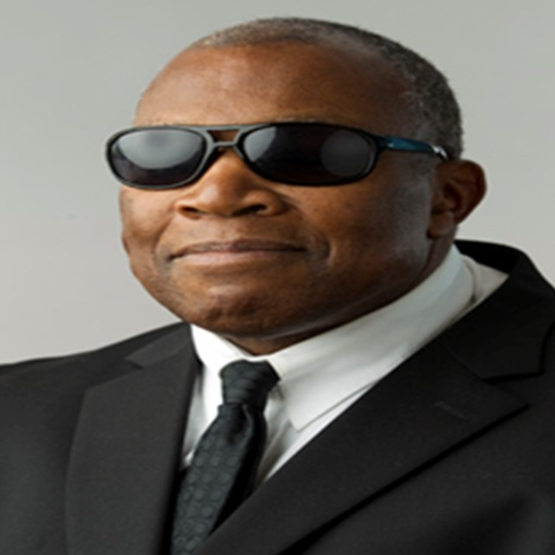
H.E. Walton Websob
Ambassador to the United Nations for the island nation of Antigua and Barbuda.
H. E. Dr Walton Aubrey Webson, is Ambassador Extraordinary and Plenipotentiary, Permanent Representative of Antigua and Barbuda to the United Nations 2014 to present. Dr Webson worked for several international organizations including Sight Savers International (UK) Helen Keller International (New York) the Caribbean Council for the blind (Antigua Barbuda) and he was the CEO of Perkins International from 2011 to 2014. He has written on NGO development, the structure and operation of Nonprofit Boards and the management of organizations. He has recently published on Eye health and the SDGS in the lead public health journal. Ambassador Webson served as Chair of the Alliance of Small Island States (AOSIS) He served as the president of the board of UNDP, UNFPA and UNOPS (2020) and as the Vice President in 2019 taking over leadership from September 2019. He also served as the president of the board of UNICEF (2017). Leading the United Nation agencies on two field visits to Asia and Eastern Europe. Ambassador Webson also served for two terms on the board of The International Centre of Non-profit Law and left the board (term limit) at the end of 2020.
